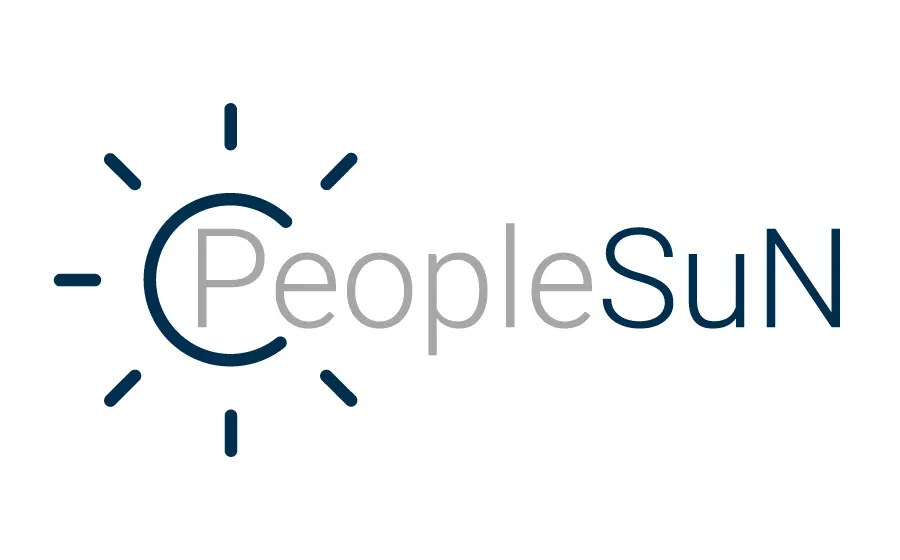Customised electrification: How the PeopleSuN project is advancing the energy supply in Nigeria
Findings from RLI research project published
Four years of research, 4,700 households and businesses surveyed, two tools and a knowledge pool: the PeopleSuN project shows what it takes for off-grid solutions to advance sustainable power supply in Nigeria.
The PeopleSuN project aimed to improve access to reliable and sustainable energy in previously underserved regions in Nigeria. Researchers from the Reiner Lemoine Institute and its German and Nigerian partner organizations show how this is possible in a Practitioner’s Guide. It brings together all the results of four years of research work.
What are the findings from the research project?
In terms of content, the following conclusions can be drawn from the project:
- Nigeria is a very diverse country. This is also evident in its energy use and energy demand. With the help of the data, however, we can now say that a technology mix of mini-grids, i.e. centralized solar systems that supply several households or entire villages via a local power grid, and solar home systems (SHS), i.e. small individual solar systems for single households, is always the most sensible solution for the needs of non-electrified rural communities.
- There is no general solution for electrification. The analysis of the data shows that the electrification mix depends on settlement patterns, the extent of productive use and the distance between consumers.
- The data acts as a template: the data collected shows how households that are already electrified use electricity, which electrical appliances they own and at what times they use them. This provides information about areas that still have no or insufficient access to electricity but have similar socio-economic and cultural conditions to those surveyed.
How do the findings help with electrification in Nigeria?
The findings have been incorporated into tools and models and can be put to practical use. Developers, energy planners, scientists and government officials and community representatives can use the tools and models to design electrification scenarios for specific communities.
Four directly applicable results have emerged from the project:
- Together with the local organisation eHealth Africa, RLI researchers surveyed around 4,700 households and businesses in the field, creating a huge open dataset of qualitative and quantitative data on actual energy use in Nigeria. How much electricity is needed when, where and by whom? The data provides the answers.
- A web-based planning tool is adapted to the Nigerian context and helps to plan off-grid systems. The tool simulates and optimizes off-grid power supply systems in Nigeria with solar home systems and solar mini-grids.
- A finance and assessment tool is an open-source spreadsheet tool that can be used to calculate and scale the costs of off-grid systems in Nigeria.
- The Nigeria Off-Grid Solar Hub is the first platform to collect and develop knowledge on off-grid electrification in Nigeria and make it accessible to all.
About the project:
In the research and development project “People Power: Optimizing off-grid electricity supply systems in Nigeria” (PeopleSuN), electrification strategies for rural areas were developed with the help of off-grid photovoltaic systems. The focus was not only on technical solutions, but in particular on developing an understanding of local needs and realistic financial frameworks in order to optimize the use of off-grid systems.
In addition to RLI, the PeopleSuN consortium consisted of other German and Nigerian organizations: the Technical University of Berlin, the Wuppertal Institute, MicroEnergy International GmbH and Fosera GmbH&Co KG, Covenant University, Obafemi Awolowo University, Université Abdou Moumouni of Niamey, PowerGen Renewable Energy Ltd, Creeds Energy Ltd, the Clean Technology Hub Energy Innovation Centre and the Nigerian Rural Electrification Agency.
PeopleSuN received financial support as part of the “CLIENT II – International Partnerships for Sustainable Innovation” funding guideline from the Federal Ministry of Education and Research.
Materials:
- PeopleSuN Practitioner’s Guide
- The open dataset is available on the Havard Dataverse platform and can be downloaded, the accompanying paper can be downloaded from the Scientific Data website
- Open planning tool Offgrid Planner
- Open financial tool FATE
- Nigeria Off-Grid Knowledge Hub
- People SuN project website
Contact:
Clara Neyrand
Reiner Lemoine Institut gGmbH
Project leader
+49 30 1208434-47
clara.neyrand(at)rl-institut.de
reiner-lemoine-institut.de
Press release RLI, 28 April 2025
